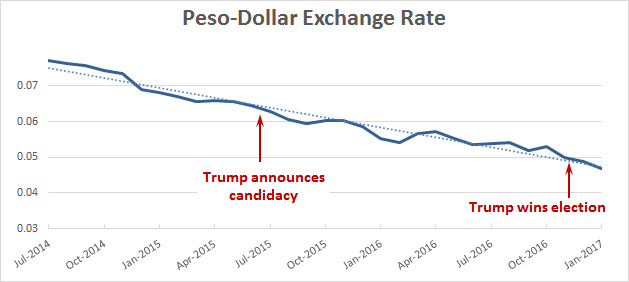Rex Tillerson and John Kelly are visiting Mexico this week to discuss NAFTA, tariffs, trade deficits, border walls, and deportations. In other words, pretty much everything Mexicans hate about Donald Trump. The LA Times reports:
[Trump] has threatened to pull out of the North American Free Trade Agreement and has proposed a tax on imports from Mexico and other countries with which the U.S. has a trade deficit. Both plans pose a serious threat to Mexico, which sends roughly 80% of its exports to the U.S., and whose peso has plummeted amid fears of what the Trump administration may do.
I keep reading this over and over and over. So let’s take a look at the value of the peso:

The peso has indeed fallen, losing nearly half its value recently. However, this decline started in the middle of 2014 and it’s been rolling steadily along ever since. If there’s any evidence that Donald Trump has anything to do with this, I sure can’t see it. Can we please retire this fable?

















